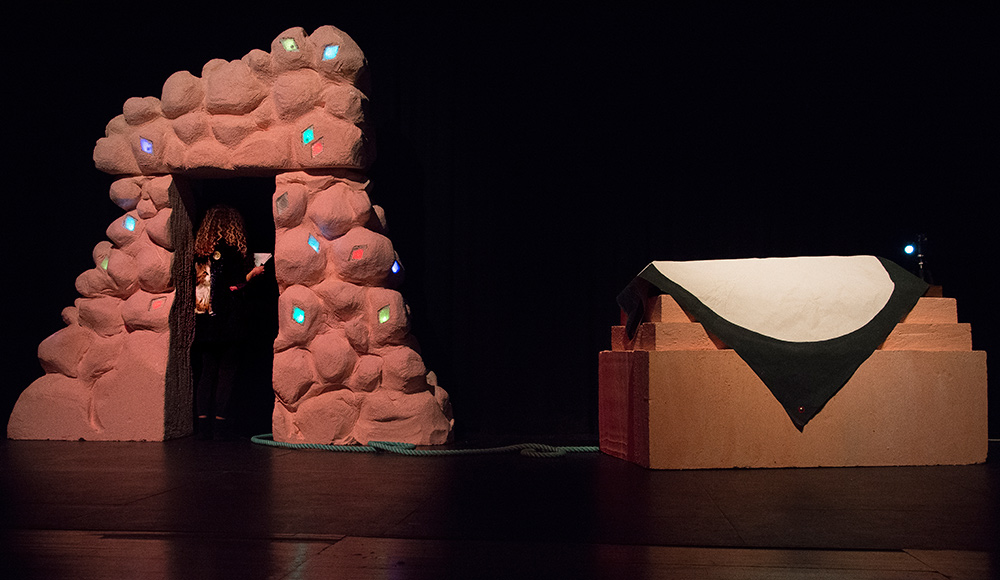
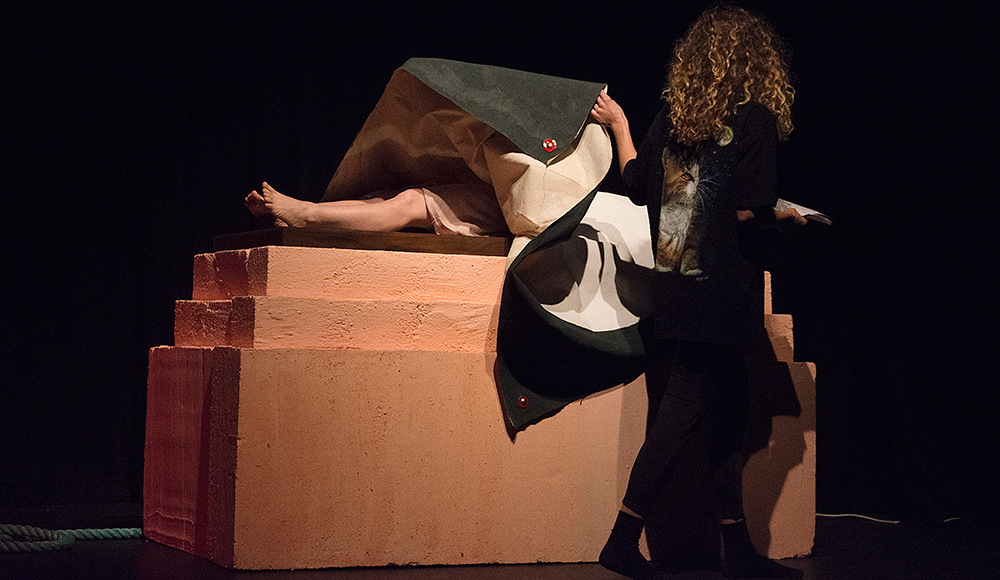
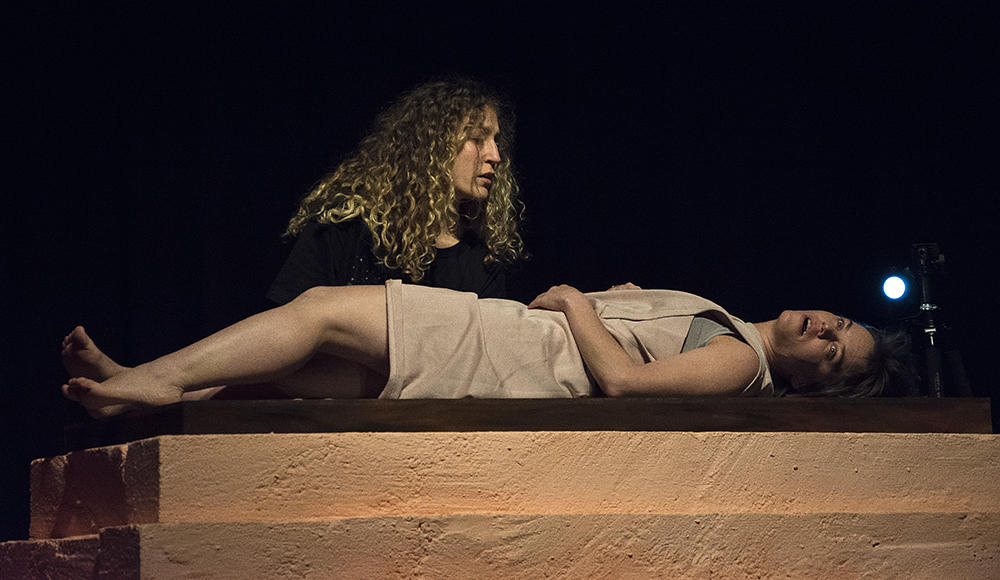
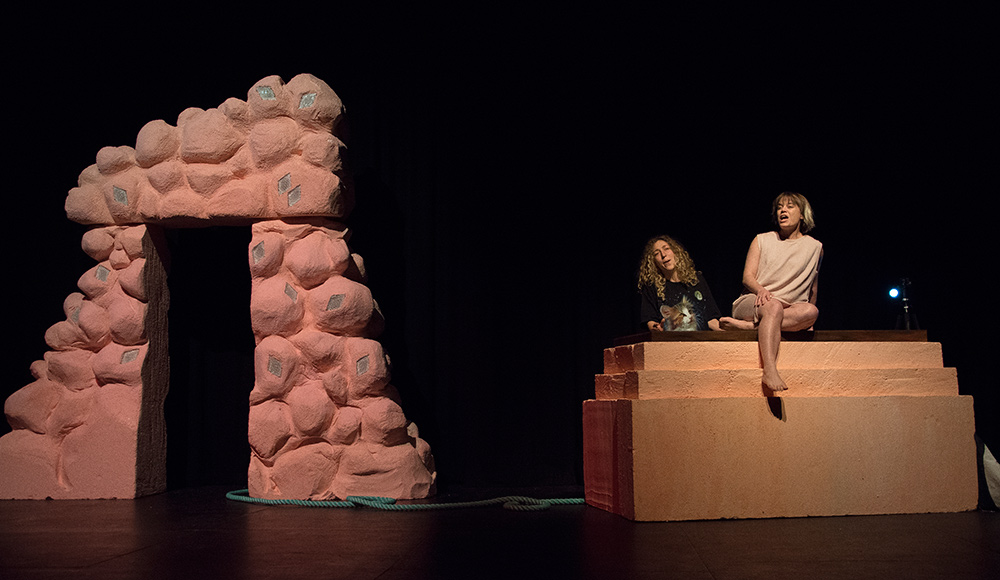
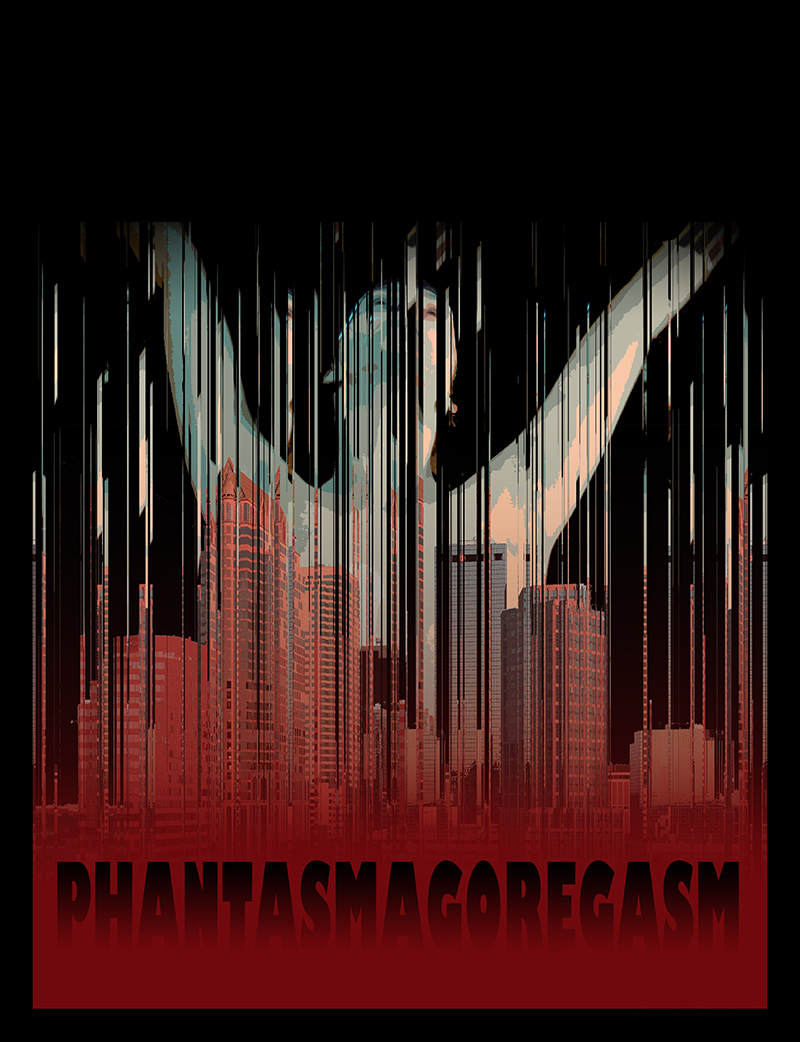
DC: PHANTASMAGOREGASM / RADAR LOUGHBOROUGH UNIVERSITY COMMISSION 2016
The following chapter of DC is told through Phantasmagoregasm, an 18th century hermaphrodite writer of Gothic fiction. Their name is a portmanteau of Phantasmagoria; A sequence of real or imaginary images like that seen within a dream. Gorgasm; A death metal band from Lafayette, Indiana. Their lyrical themes are murder, gore, perversion and torture. And, orgasm.
Phantasmagoregasm is both creator and empath, the prodigal plasticity of their extraordinary body and faculty to identify transforms them to protean surface, mirroring the state and actions of the characters they create or even becoming objects or the humanized buildings those characters live in. This is a Gothic thematic convention that Allen Edgar Poe uses in the genre-defining, ‘The Fall of The House of Usher’.
In Phantasmagoregasm’s short story, “The Old Haunted House of Terrifying Terror”, two sisters, Nora and Alma perpetually bury the decomposing body of their father. The body only remains at bay as long they scream loudly and uninhibitedly of their self-realization and love, for themselves and for the world, but they grow tired, sleepless and weaken and lose their voice. When silence befalls the psycho-sacred house, pyramid shaped, high pitch invisible forces bring their father’s rotting body back into the house from its burial place.
Although dead, the corpse has a strong syncopathic influence on the house, Alma the older sister’s body falls to a cursed sleep and unimaginable violence is inflicted onto her body, all the members of the house are very much in a liminal elsewhere, they are all ghosts, they are all haunted.
___________________
‘Dark Continent Productions’, is an ongoing feminist project, currently iterated through character-led installations, films, performances and experimental texts, it is an expanded adaptation of Christine de Pizan's 1405 pioneering proto-feminist book, ‘The Book of the City of Ladies’. It is an allegorical city of women populated by composite, symbolic protagonists that embody excess and examine 'feminine' subjectivity and experience as well as the potentials of a realism defined by excess and the irrational; qualities traditionally surrounding notions of “femininity”. The ‘feminine’ not as female but as a kind of radical otherness to any conception of the real.
The city is simultaneously internal and geographic, past and future, part ruin, part becoming, a city in time but not in space, within it history is reconstructed to privilege sensation and interiority, it is a city outside of hierarchy, its mythologies conceptualise the ‘epic’ as a form to test the potentials of feminist politics and ideologies, a platform to imagine a post-patriarchal world.
